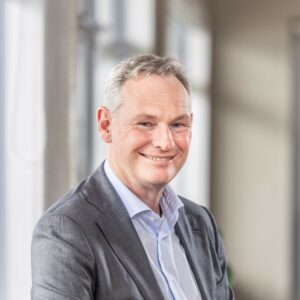 Six years spent travelling and working in USA, the Netherlands, United Kingdom, Belgium, Sweden and Finland have shaped how Mark approaches his life and his work. “I have learnt from experience that projects are more successful when a group of people with different skills and perspectives create a shared vision and then work together to achieve it,” he says, and adds that Resolve Group’s reputation for creating and maintaining strong, productive relationships is a major factor in his choosing to join us.
Six years spent travelling and working in USA, the Netherlands, United Kingdom, Belgium, Sweden and Finland have shaped how Mark approaches his life and his work. “I have learnt from experience that projects are more successful when a group of people with different skills and perspectives create a shared vision and then work together to achieve it,” he says, and adds that Resolve Group’s reputation for creating and maintaining strong, productive relationships is a major factor in his choosing to join us.
The experiences he gained overseas have also contributed to his interest in working over the full life cycle of a project from initial advice and guidance to business case development, procurement and project delivery. In many of his roles, he introduced new business processes, such as innovative procurement methods, early contractor engagement and the establishment of a tiered system of supplier panels. I like a challenge, from working on a project with a diverse range of stakeholder requirements to reshaping an entire infrastructure programme so that it can be delivered more efficiently.
While in the Netherlands, Mark pursued his interest in Intelligent Transportation Systems and delivered a data exchange platform for connected and autonomous vehicles, which included the implementation of services such as road user charging, priority for sustainable modes of transport, efficiency measures to reduce vehicle emissions and driver alerts to increase awareness of potential hazards. He is hoping to find ways to use the knowledge and skills he has acquired in transport technology to help transform the mobility sector in this country also. The best thing I learned from spending time in USA and Europe is that technical solutions are readily available and can be deployed at very low cost; the hardest part is bringing various organisations from the public and private sector together in order to make a real transformational change.
Mark is looking forward to working with government agencies and technology suppliers in New Zealand to find innovative solutions that address the key challenges in mobility such as reduction of carbon emissions, increasing public transport patronage, encouraging active modes of transport and improving safety. For example, traffic signals can be adapted to give priority to public transport, cyclists and pedestrians. Motorists can be given in-vehicle warnings of speed limits, roadworks and approaching emergency vehicles. Distance-based revenue collection can be used to replace fuel tax, or to manage demand on congested routes. A lot of people think that these types of services require significant investment in IT infrastructure, but cellular technology is now at a point where these systems are being deployed at large scale just using smartphone apps.
Mark enjoys volunteering for community projects when he can. Most recently, he was involved with a not-for-profit organisation that develops educational resources for schools in Africa. Mark used his engineering background to develop exercises in mathematics and computer science for 10-11-year-olds. The reason I got into engineering was because I loved science as a kid, in particular solving real-world practical problems. I like the idea that I can create some fun exercises that might inspire the next generation to also consider a career in engineering.



